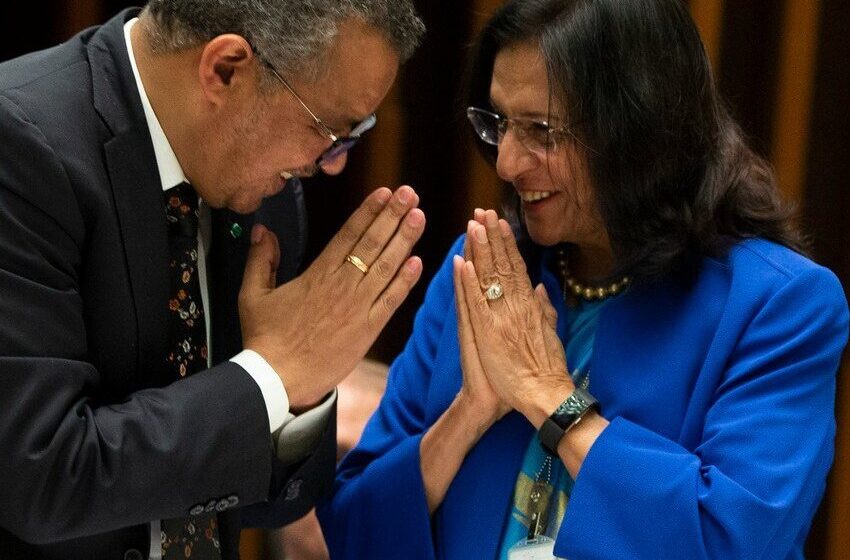
Underfunded At important conference, WHO wants global health “reinforcement”
According to health policy experts, the World Health Organization will advocate at its board meeting this week for an increased role in addressing the next global health emergency following COVID-19, but is still seeking answers on how to pay it.
The meeting in Geneva determines the program for the UN agency this year, as well as its future budget, with the WHO facing two major challenges: a world that expects more and more from its leading health organization, but which has not yet demonstrated a willingness to fund it to meet those expectations.
Countries will provide comment on WHO Director-General Tedros Adhanom Ghebreyesus’ global strategy to increase preparation for the next pandemic, which includes the negotiation of a legally enforceable treaty, at the annual meeting of the Executive Board from January 30-February 7.
Timothy Armstrong, WHO’s director for governing bodies, told reporters when asked about the agenda, “I believe the focus will be on the program budget, followed by sustainable funding.”
In addition, he included “the perspective of the World Health Organization, acknowledging that WHO requires a strengthened key role” in the global health emergency system.
The World Health Organization is requesting a record-breaking $6.86 billion for its 2024-2025 budget, claiming that granting this amount would be “a historic step toward a more powerful and autonomous WHO.”
However, ratification is contingent on member states delivering on commitments made last year to increase required levies, a fact that is questionable because the agreement was always subject to restrictions.
Keep Reading
It “remains to be seen” if all nations would commit to hiking fees, according to a source close to the negotiations: “What we are now observing is that a number of member states are attempting to impose several preconditions.” Reuters was unable to quickly determine which nations may withdraw funding.
The current base budget, which does not reflect the funding revisions, has a finance shortfall of roughly $1 billion, according to a WHO document; nevertheless, this imbalance is not unusual at this time, according to two sources. One individual did add that it was “absurd” that the WHO was still scrambling for funds after COVID-19.
“It’s a massive knot,” said Nicoletta Dentico, co-chair of the Geneval Global Health Hub, a civil society organization. “The vulnerability of WHO is readily apparent.”
A document revealed that the agency is also considering initiating large replenishment rounds every few years to replenish its funds.
According to papers, the WHO, which was founded in 1948 and is celebrating its 75th anniversary, will also use the summit to urge for a greater role in pandemic preparation.
Tedros will request the establishment of a Global Health Emergency Council tied to WHO governance. However, foreign experts have stated that such a council requires political leadership at a higher level.
“Given that pandemic threats involve and impact nearly every sector, it must be a result of a UN General Assembly resolution, be appointed by it, and be accountable to it,” said Helen Clark, former prime minister of New Zealand and head of the independent panel established to review the handling of COVID, in an interview with Reuters.




